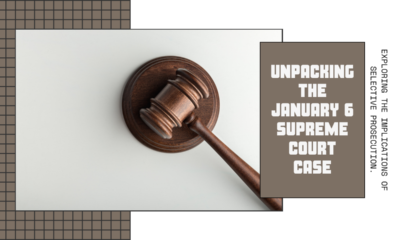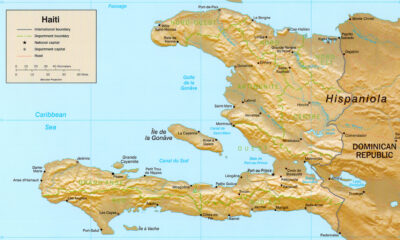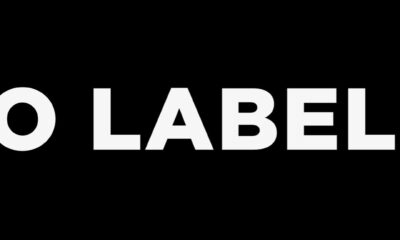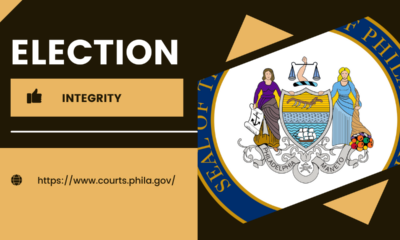Judicial
Supreme Court backlogged?
The Supreme Court still has released no decision in the abortion case, and watchers should reconcile themselves to waiting until July.
The United States Supreme Court, at the time of posting, still has issued no opinion in Dobbs v. Jackson Women’s Health Organization. The Court could be delaying deliberately, hoping that pro-abortion demonstrators, who are clearly getting ready to riot in the streets of the nation’s capital, will give up and go home. But the delay could reflect nothing more than a backlog of the Court’s cases and opinions. That backlog could in turn be due entirely to the Court’s fears of coronavirus.
History of release of Supreme Court opinions
A Supreme Court term technically runs from the first Monday in October of one year to the day before the first Monday in October of the next. The Court numbers each term by the year of the opening October. Until the 2019 Term, the Supreme Court historically released all their opinions by the end of June. The Justices then went home for summer recess. Anyone visiting the Supreme Court opinion page can browse through opinions for terms from 2014 onwards. In that way one can readily confirm that from 2014 through 2018, the Court did wrap up its business by June 30.
In the 2019 Term, things changed – radically. The Supreme Court held up no fewer than ten opinions and released them in July. The 2020 Term at first looked to be a little better, in that the Court released three opinions in July. But the Court then released an opinion in August!
What has changed the way the Court does business? Coronavirus, that’s what.
How coronavirus has changed the Court
Visitors to the Supreme Court home page will notice at once that the Courthouse is closed until further notice. Furthermore the Court has issued several orders governing behavior in the Courthouse by attorneys coming to give argument.
The Court has also made key changes to the way the Clerk’s Office runs. This especially affects the way someone files an appeal or for a writ of certiorari. In fact the Court has sharply curtailed hand-delivery access and encourages parties to file by mail or commercial carrier.
The key document CNAV has discovered is the case distribution schedule. This schedule includes distribution dates, conference dates, and case lists. Note carefully: the Supreme Court has already decided to distribute cases on four days in July.
From this schedule, CNAV has extracted the following case distribution dates, moving forward:
- June 16, 21, 22, 23, 29, and 30, and
- July 6, 7, 13, and 14.
The Court has scheduled two more conferences, for June 16 and June 23.
Of those distribution dates, the Court marks most of them “paid.” The others it marks “IFP” for in forma pauperis. (This last phrase means letting a petitioner file without paying a fee.) June 16, 23, and 30, and July 7 and 14, are IFP distribution dates.
In summary: we still have a long time to wait
All of which to say that the Supreme Court is taking its time to distribute its opinions. As nearly as CNAV can tell, the Court decided on this schedule far in advance of the Alito Draft Leak in Dobbs v. Jackson Women’s. (The Court still does not know who leaked that draft.)
Almost certainly, Dobbs is a paid case, not an in forma pauperis case. That limits further the dates on which the Court might at last release its opinion. The latest such date is Wednesday, July 13. Furthermore, CNAV emphasizes that Court case distribution and other schedules are subject to change without notice.
The Court could be holding up its opinion in Dobbs for three reasons:
- Chief Justice Roberts might still be trying to peel off Justice Barrett, Gorsuch, or Kavanaugh to create a majority to support a ruling of limited effect. The Gestational Age Act of 2018 would stand, but the Court would take that “half measure” the original plaintiffs decried. Thus Roe v. Wade would stand, but subject to even further limitation.
- The Marshal of the Court might have advised waiting out the mobs that have infiltrated the capital city. A group calling itself Shut Down DC is only one example. Perhaps the CJ and/or the Marshal think those mobs will go home if they have to wait until July.
- Or the Court could simply have a backlog of cases. Coronavirus continues to disrupt Court routine, and the Court has not fully mitigated that disruption, even now.
Terry A. Hurlbut has been a student of politics, philosophy, and science for more than 35 years. He is a graduate of Yale College and has served as a physician-level laboratory administrator in a 250-bed community hospital. He also is a serious student of the Bible, is conversant in its two primary original languages, and has followed the creation-science movement closely since 1993.
-

 Executive22 hours ago
Executive22 hours agoJanuary 6 case comes down to selective prosecution
-

 News1 day ago
News1 day agoRolling the Dice on Republicans: Has the Right Become Delusional?
-

 Civilization1 day ago
Civilization1 day agoBiology, the Supreme Court, and truth
-

 Executive7 hours ago
Executive7 hours agoWhy Fatal Police Shootings Aren’t Declining: Some Uncomfortable Facts
-

 Civilization5 hours ago
Civilization5 hours agoPresident Biden Must Not Encourage Illegal Mass Migration From Haiti
-

 Entertainment Today8 hours ago
Entertainment Today8 hours agoWaste of the Day: Throwback Thursday: Millions Went To Video Game ‘Research’
-

 Guest Columns5 hours ago
Guest Columns5 hours agoWhat Was Won in No Labels’ Crusade
-

 Constitution6 hours ago
Constitution6 hours agoEquality Under the Law and Conflicts of Interest in New York










